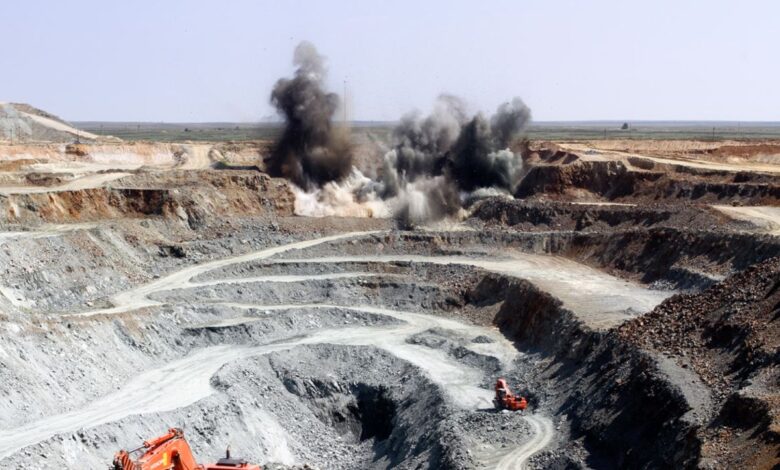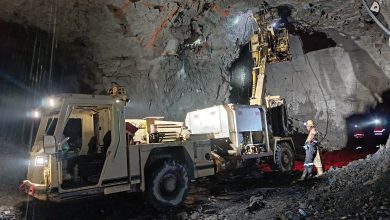
Fostering sustainable social development in South Africa’s mining communities
Five lessons for funders and mining companies
The mining sector in South Africa plays a vital role in the national economy. In 2023 alone, it contributed R440.8 billion to the country’s GDP and provided employment to 479,111 people. But, while the sector’s economic contributions are significant, mining companies face increasing pressure to operate as responsible corporate citizens.
This responsibility includes considering the social and environmental impacts of their operations on mining communities and aiming to leave these communities better off than they were found, writes Bert Lopes, Partner and Lumka Tshiki, Senior Manager at BDO South Africa.
Historically, South Africa’s mining sector has been associated with labour exploitation and unequal wealth distribution, leading to a strained relationship between mining companies and local communities, often marked by distrust. For decades, natural resource extraction prioritised profits over local development, leaving deep-rooted social challenges such as poverty, limited access to education and healthcare, inadequate housing, and environmental degradation. Addressing these issues has become a priority, with a focus on community empowerment, climate change adaptation, and sustainable development.
To address these systemic challenges, mining companies are guided by regulatory frameworks like the Mineral and Petroleum Resources Development Act (MPRDA) and the Broad-Based Black Economic Empowerment (BBBEE) Act, which mandate socio-economic contributions. Alongside policy, evolving stakeholder expectations—from investors to civil society groups and local residents—have intensified calls for responsible and inclusive practices in mining.
Although mining companies are legally obligated to implement social development initiatives, the path from policy to practical, on-the-ground impact can be complex and challenging. Inconsistent enforcement, resource limitations, and gaps in implementation often prevent these initiatives from fully achieving their intended benefits.
Based on our extensive experience managing community development trusts, BDO Business Services Outsourcing, working within the Natural Resources sector, has identified several key insights to guide businesses aiming to strengthen relationships with mining communities, enhance sustainability, and build reputations as global, responsible players.
-
Commit to long-term impact
Supporting communities requires a long-term perspective. It may take years for social development projects to show measurable results, and while Social and Labour Plans (SLPs) are often viewed as regulatory checkboxes, the true challenge lies in taking a holistic approach to community development. This long-term focus ensures that projects can yield lasting benefits, extending beyond the lifespan of a mine.
2.Embrace Community Partnerships
Many funders assume that the “knowledge project” is externally driven, suggesting that solutions for mining communities must be imported. This perspective is flawed, as it implies that these communities are inherently dysfunctional and unable to address their own challenges. To drive genuine development, mining companies should work closely with community members, co-designing programmes that respond to locally identified needs. This collaborative approach not only builds trust but also leverages local expertise, ensuring that initiatives are grounded in community realities rather than imposed from the outside.
-
Centre engagement in strategy
Effective community engagement is essential for the success of development initiatives. By involving community members and stakeholders in the design and implementation phases, companies can create more inclusive and impactful initiatives. A collaborative engagement strategy is crucial in establishing guidelines for how trusts or foundations interact with communities, helping to build open, transparent, and sustained relationships.
-
Build collaborative ecosystems
In some cases, the risk associated with certain interventions may be beyond the capacity or appetite of a single funder. By joining forces with like-minded partners, mining companies and funders can share financial and operational risks, creating an ecosystem of support for high-impact projects. Through pooled resources and combined expertise, these collaborations can drive deeper, more sustainable community benefits.
-
Prioritise environmental stewardship
In addition to social responsibilities, mining companies must prioritise environmental stewardship. By integrating sustainable practices into their operations, they can minimise adverse environmental impacts and contribute positively to the ecosystems and communities in which they operate.
Mining companies bear the responsibility of supporting communities today and for future generations. While this is no easy task, it’s one that must be approached with urgency, integrity, and commitment to address historical inequalities and the ongoing challenges in mining communities. Regulatory frameworks like the MPRDA and BBBEE Act provide a strong foundation for progress, but lasting success in social development depends on mining companies going beyond mere compliance. Meaningful, community-driven engagement is key to creating sustainable change and fostering a more equitable future for South Africa’s mining communities.






